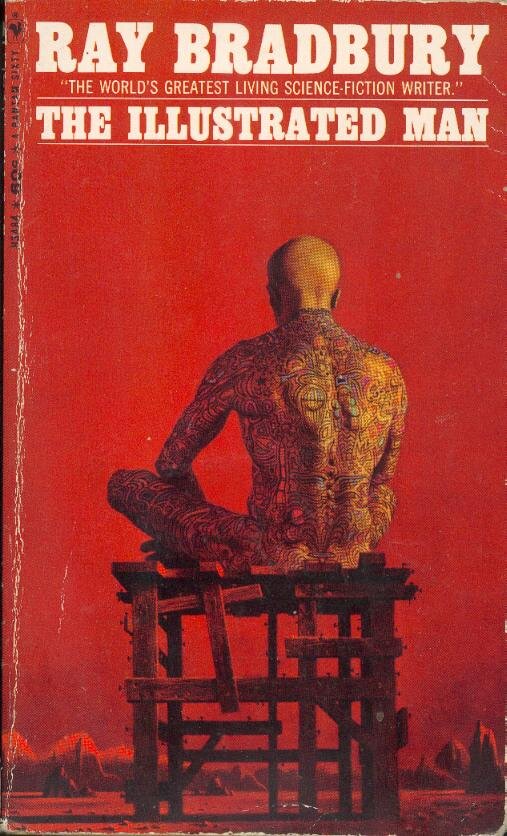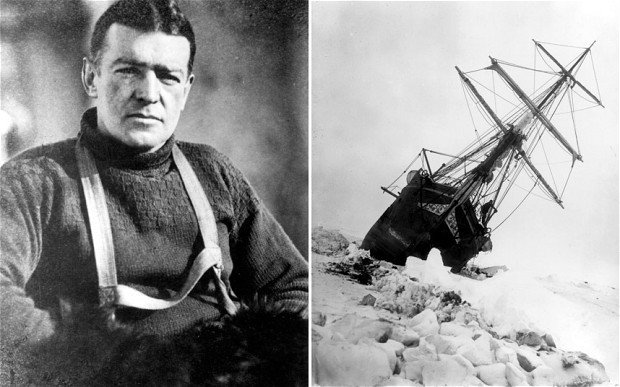The Illustrated Man by Ray Bradbury Book Review
Ray Bradbury’s The Illustrated Man is a book I have owned for a long long time. [Amazon link] However, this should be a fun review as it has been more than twenty years since I last picked up this collection, and much has changed in my own life in that interval.

Veldt *****
The last time I read this I think I was a teenager. Reading it again, as a parent, it hits really different. This is the kind of eerie prescience that earns futuristic fiction its reputation.
A story of a mother and father who foolishly buy their children something we would now call an augmented reality playroom. and their increasingly panicked attempts to reign their children in after years of giving in to every whim would be an absolutely brutal takedown of the Internet and social media’s effects, except it was written sixty years before those things existed.
The story is expressed in terms far more Freudian than we would use now, but otherwise the dynamics between parents and children are eternal.
Kaleidoscope ***
This story of the Newtonian aftermath of a spaceship accident is something like a post-Christian or poor man’s imitation of a Stoic version of a rumination on a good death. Except it falls a little flat in its imitation of Christian forgiveness without Faith, Hope, or Charity. I think I would like it a little better if it either settled on an accurate description of what real people would do in this circumstance, or embraced its half-hearted didactic purpose.
The Other Foot ****
A story of racial revenge and nuclear apocalypse. It is interesting to read something written in a time when the legal apartheid of the American South was a reality instead of a hated bit of history. It’s message fiction, but at least the message is one I can get behind.
The Highway ***
Another nuclear apocalypse story, but this time from the point of view of a Mexican peasant. I can remember this one from a couple of decades ago, so the setting is at least memorable, but the story isn’t.

The Man *
This was the point in this collection where my opinion started to turn strongly against it. A number of authors have turned their works to speculating what the Incarnation might mean for people who live on worlds other than Earth. But Bradbury’s story is just wrong, like hearing a song you know well played in a discordant key. It is as if he wrote a story using elementary school misunderstandings of Christianity derived from popular culture instead of knowing something about his subject. It is absolutely maddening.
To take just one example, when the skeptical Captain Hart questions the locals about “The Man”, none of them can provide a description of him despite having seen him recently. Hart seizes on this as evidence that this is some kind of scam, and he’s right! The Incarnation means that Christ is a man who lived in a particular time and place, and has a particular appearance. Christian antiquity has even provided us with a consensus depiction, most famously represented in the Christ Pankocrator in the Hagia Sophia. As Bradbury was a spiritual not religious type, I suppose I can’t blame him for not knowing, but it does demote his stories on religion to juvenile scribblings.

The Long Rain *
Following the Pulp Archivist, I have described the period from 1945 to 1954 in futuristic fiction as the Age of Despair. This tale of survival on the pre-space probe Venus of rain and jungles is absolutely depressing, even though it has a surprisingly happy ending.
I have definitely read stories that the United States Army rapidly turned into something far less impressive in the years inbetween the end of WWII and Korea, and this story is dated 1950, but the idea that a military transport over Venus wouldn’t have appropriate survival gear at all beggared my belief. Not lost, or destroyed. Just not equipped. The story is also something like an inversion of Ernest Shackleton’s Endurance, with only the weak and pathetic leader managing to make it to safety.
Admittedly, Shackleton’s expedition was in the previous century, as the twentieth century only really truly began in 1914, but for Shackleton’s true story of far more harrowing survival to precede this by only thirty six years left me flat. At least when Hampton Sides reported the failure of John C. Fremont’s fourth expedition, he got some gallows humor out of it.
The Rocket Man ***
A decent but not stellar shifting of the old story about a man who is married to the sea into the space age.
The Fire Balloons *
The Gnostic heresy in short story form. I’m really down on Bradbury’s take on religion in this collection. The immovable Father Stone and the flighty Father Peregrine are also named a little too on the nose.
Okay, it’s time to just up and admit that I gave up on this collection. I’m not doing myself or anyone else any favors by reading stories in a style I don’t care for just to rag on them. Much like with J. G. Ballard’s short stories, I just don’t like the kind of story that leans too heavily into speculation without an adventure in the background to give it some narrative structure.
At some point, I’ll probably try some Bradbury novels. I’ve found that I detest Neil Gaiman’s short stories, but I quite like some of his novels. It may be the same with Bradbury.



Comments ()